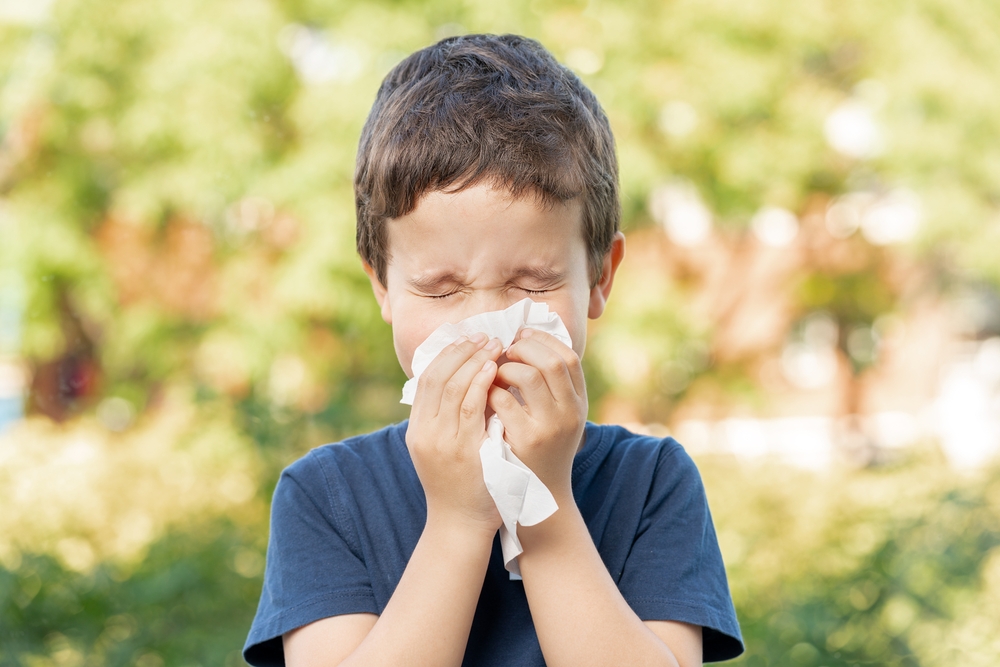Do you struggle with seasonal allergies? Many people do, but you should feel better knowing there are several natural strategies you can implement to manage your symptoms. From daily preventative supplements to more personalized treatments, you have plenty of options to help you feel better. Here are 7 of our best tips for naturally treating seasonal allergies:
1. Take Natural D-Hist
If you’re looking for natural ways for treating seasonal allergies, D-Hist is a great option. This supplement supports healthy nasal passages, sinus and respiratory health, and promotes normal mucus viscosity. It is full of antioxidants, flavonoids, and botanicals to help individuals manage seasonal allergies. D-Hist also contains N-acetyl cysteine, which is a natural mucolytic that helps break up mucus, as well as quercetin, a mast cell stabilizing herb that slows down the release of histamines.
2. Add Daily Supplements
 While adding supplements into your daily routine may not help with treating seasonal allergies and their symptoms, it can help with preventing a major reaction to them. Some of the most common supplements people take include vitamin C, vitamin D, and probiotics. You can also add peppermint, chamomile, ginger, moringa leaf, and marshmallow root to your regimen through supplements, teas, or foods.
While adding supplements into your daily routine may not help with treating seasonal allergies and their symptoms, it can help with preventing a major reaction to them. Some of the most common supplements people take include vitamin C, vitamin D, and probiotics. You can also add peppermint, chamomile, ginger, moringa leaf, and marshmallow root to your regimen through supplements, teas, or foods.
3. Do IV Nutrient Therapy
Another preventative treatment you could incorporate is IV nutrient therapy. Each treatment is specially blended for each person’s individual needs. We can add vitamins to the blend your body needs to fight against allergy symptoms. The procedure is simple and doesn’t require any downtime, and you’ll start to feel better soon!
4. Focus on Gut Health
 Our gut is connected to several other systems in our body, like the immune system and even mental health. At our functional medicine office, we recommend focusing on gut health for treating seasonal allergies, in addition to several other health issues. Some of the best ways to ensure you’re focusing on the health of your gut is to incorporate supportive supplements long before allergies hit. We suggest incorporating daily supplements for ongoing support, like probiotics, prebiotics, and l-glutamine.
Our gut is connected to several other systems in our body, like the immune system and even mental health. At our functional medicine office, we recommend focusing on gut health for treating seasonal allergies, in addition to several other health issues. Some of the best ways to ensure you’re focusing on the health of your gut is to incorporate supportive supplements long before allergies hit. We suggest incorporating daily supplements for ongoing support, like probiotics, prebiotics, and l-glutamine.
5. Reduce Exposure to Allergens
If it’s possible, you should try to reduce your exposure to known allergens. That could include not spending time outside if certain plants are blooming or stay inside on windy days. If you do need to be outside or are around allergens, the first thing you should do when you come home is take off your clothes and immediately take a shower.
6. Use Nasal Irrigation Device
 If your nasal passages do become congested, a great way to clear them out and prevent infections is to use a nasal irrigation device. This could include a specially designed bottle, a neti pot, or other device. You’ll want to use distilled water or boiled then cooled water for sanitary reasons, and possibly include a saline solution. Then you’ll use the device to send the liquid through nasal passages to unblock them.
If your nasal passages do become congested, a great way to clear them out and prevent infections is to use a nasal irrigation device. This could include a specially designed bottle, a neti pot, or other device. You’ll want to use distilled water or boiled then cooled water for sanitary reasons, and possibly include a saline solution. Then you’ll use the device to send the liquid through nasal passages to unblock them.
7. Use a Nasal Steroid Spray
Another tip for treating seasonal allergies is to use a nasal spray. There are a variety of sprays, and they are beneficial in their own ways, but a nasal steroid spray is best. This spray is anti-inflammatory to keep nasal passages open. You can use these as a long term treatment or as needed.
These are just some tips for treating seasonal allergies you can incorporate to help keep your symptoms under control. Are you thinking about adding supplements or are interested in doing IV nutrient therapy for your preventative health? Reach out to us with any questions, and we will be happy to answer them!











